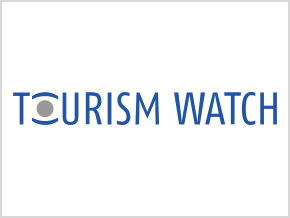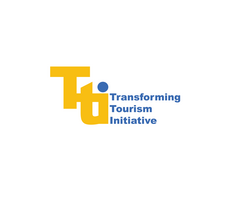The current situation of global tourism is characterized by ongoing geopolitical, fiscal and environmental uncertainties, while many destinations have the urgent wish to return to pre-pandemic tourism as soon as possible. We asked Megan Epler Wood how she assesses the current situation. Epler Wood is main author of the groundbreaking study ‘Destinations at Risk, the Invisible Burden of Tourism‘. We were curious to know what is necessary to transform tourism at destination level from a high-cost, low-benefit and vulnerable economic activity to a sector that is ready for a future in a more and more volatile world.
What are the invisible burdens of tourism and why does it matter to destinations to know the true costs and establish holistic accounting practices?
Megan Epler Wood: The invisible burden on tourism destinations is the cost to protect destinations’ environment and social assets while providing sustainable infrastructure for tourists and local people. These unaccounted costs exist in nearly all destinations, because the globally accepted economic system looks universally at visitor numbers and economic impacts, both direct and indirect at a national level, but it does not include the cost of managing tourists locally.
Destinations in most tourism areas experience budgetary shortfalls in critical categories, such as improving energy systems, the management of waste, wastewater treatment, and protection of valuable natural and heritage areas. They struggle to protect important environmental and social assets in their regions and frequently lack the expertise to do so.
Why are these costs typically not recognized?
MEW: At present, tourism management agencies focus almost exclusively on “demand” without taking into account the essential nature of protecting supply. But this is slowly changing. In future, destination managers will need to sit at the new nexus between data on tourism demand and the supply of resources to support the tourism economy to rebalance the “demand-supply equation” for tourism destinations.
For example, The National Tourism Authorities (NTAs) of the future will have to co-manage the essential components of tourism experiences by working with local authorities to lower greenhouse gas (GHG) emissions per tourist and develop more regional visitation strategies with diversified and inclusive economic opportunities for local people. The longer destinations seek to grow without investing in lowering GHG emissions, or improving their residents’ future resilience, while failing to invest in critical natural resources (such as coral reefs and better management of freshwater resources) the lower the chances are that they will remain competitive.
Changing the way destinations are managed is a long-term endeavor. What are potential first steps to change the existing local governance systems?
MEW: One way to secure the most rapid results will be for destination managers to work closely with other departments of government, especially “Smart City” offices which already seek to maintain and manage data to meet regionwide goals to improve infrastructure and lower GHG emissions. Inclusivity for local populations must be measured and baselines will be needed that effectively track how tourism benefits populations of all origins. Without question, new destination management units will require more trained personnel, but there is every reason to believe that they will have the potential to manage tourism sustainability on behalf of governments working in a public private system of governance.
Based on the ‘Invisible Burden Report’ a digital e-Cornell course was developed. Which role does e-learning play in tourism today?
MEW: Until 2010, my work was primarily focused on consulting for development agencies in emerging economies, via my company EplerWood International. We developed plans for rural, sustainable tourism economies together with local counterparts in over 35 countries. While I had many accomplished individuals to collaborate with over the years, I never once had a trained sustainable tourism counterpart in over a dozen contracts between 2003-2012. Because of this experience, I realized on-line courses in sustainable tourism were essential to expanding expertise in my field! I began to teach online at Harvard Extension School in the graduate department of Sustainability and Environmental Management, where I had as many as 500 students. But I was always aware that we needed to reach even more students, more affordably, in their own time zones. This gave birth to the idea of a downloadable, certificate course, which we now have completed at Cornell University (see box at the end of this article).
I recently had a wonderful opportunity to speak with young students who had just graduated from eCornell’s hospitality training program in Rwanda in November 2022. They were beaming and telling me how difficult it was, and how proud they felt now that the program was completed. It is certainly my impression that eCornell has honed a strong system for training professionals worldwide which can provide effective professional advancement for the next generation to transition destination marketing organizations to become destination marketing and management systems.
How can the restructuring of the tourism economy be financed?
MEW: Our research indicated that emerging economies will need to be prepared to develop “concessionary finance” packages, which are designed by blending various financing opportunities, using grants, loans, and impact investments. Establishing this system will require support from international economic development agencies and very importantly, nations will need to begin to dedicate a portion of tourism taxes to protecting tourism destination’s vital assets and local well-being.
How is the situation on Small Island Development States?
MEW: On small island states, climate change impacts will dramatically increase operational costs of tourism. They will have to seek to improve their return on investment from tourism for more people locally and be sure industry development is inclusive while covering the costs of the invisible burden. While the instruments for investment in sustainable destinations are not yet there, we know island states, such as Barbados are already fully considering how to lower uses of fossil fuels and gain financing for better protection of natural capital to ensure the future of their tourism industries, while helping to protect the region’s economy at large.
Barbados has already succeeded in receiving approval for a debt for nature swap, which is backed by a $150 million guarantee from the Inter-American Development Bank and the Nature Conservancy. The debt conversion will provide conservation funds to strengthen the government’s ability to protect their coastline and their resilience. Prime Minister of Barbados, Mia Mottley noted the importance of this program for the protection and conservation of Barbados’ marine resources in this release in September 2022.
"This climate crisis is one that requires the urgent action of all. While we continue to push and wait on the international community at large to treat this situation as a matter of priority, we in Barbados have taken action of our own to combat its damaging effects.”
Thanks very much for this interview!
The new eCornell Course: Sustainable Tourism Destination Management Course
Based on the invisible burden report, the eCornell Sustainable Tourism Destination Management course was developed. This new, fully downloadable 8 module-course will be launched in December 2022. It is a carefully crafted set of lectures, downloadable tools, exercises, activities, and quizzes which lead future destination managers through the process of creating well-balanced, economically inclusive destination economies which manage environment and social impacts at the destination level. Designed for professionals seeking to apply this information, the course allows each individual to test out their skills at measuring and managing the invisible costs of tourism in new destination management units, to allow them to respond quickly to the most pressing issues of our time.
The course was developed by the SC Johnson College of Business’ Center for Sustainable Global Enterprise, Sustainable Tourism Asset Management Program (STAMP) in partnership with the global NGO The Travel Foundation. The course was financially supported by Deutsche Gesellschaft für Internationale Zusammenarbeit (GIZ) on behalf of the German Federal Ministry for Economic Cooperation and Development (BMZ). The new course can be taken in a self-paced format to spread the knowledge even further.
Scholarships for 1000 students across the world will be available via application from target countries where affordability might otherwise be a barrier to enrollment through a process supported by the World Tourism Organization of the United Nations (UNWTO) and The Travel Foundation.
To the new eCornell Course:https://ecornell.cornell.edu/courses/hospitality-and-foodservice-management/sustainable-tourism-destination-management/
Apply for funded places here:https://www.thetravelfoundation.org.uk/destination_management_online_course/
The eCornell-Keynote
Some of these key issues will be explored in our new, free of charge eCornell Keynote series Sustainable Tourism on a Changing Planet, launching on December 19, which will allow professionals and students to explore all of these ideas in greater depth, with expert guidance.
Register here:https://ecornell.cornell.edu/keynotes/overview/K121922/


![[Translate to english:] Computer](/fileadmin/tourismwatch/_processed_/5/8/csm_john-schnobrich-FlPc9_VocJ4-unsplash_cc5d5deeb8.jpg)
![[Translate to english:] Currently Accounted VS Typically Unaccounted](/fileadmin/tourismwatch/_processed_/9/3/csm_Currently_Accounted_VS_Typically_Unaccounted_Bild_1_4586e0d207.png)
![[Translate to english:] Main focus to date VS More focus required](/fileadmin/tourismwatch/_processed_/a/e/csm_Main_focus_to_date_VS_More_focus_required_Bild_2_be4360ce45.png)


